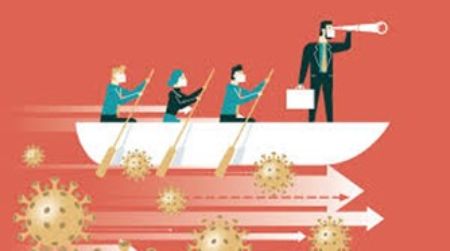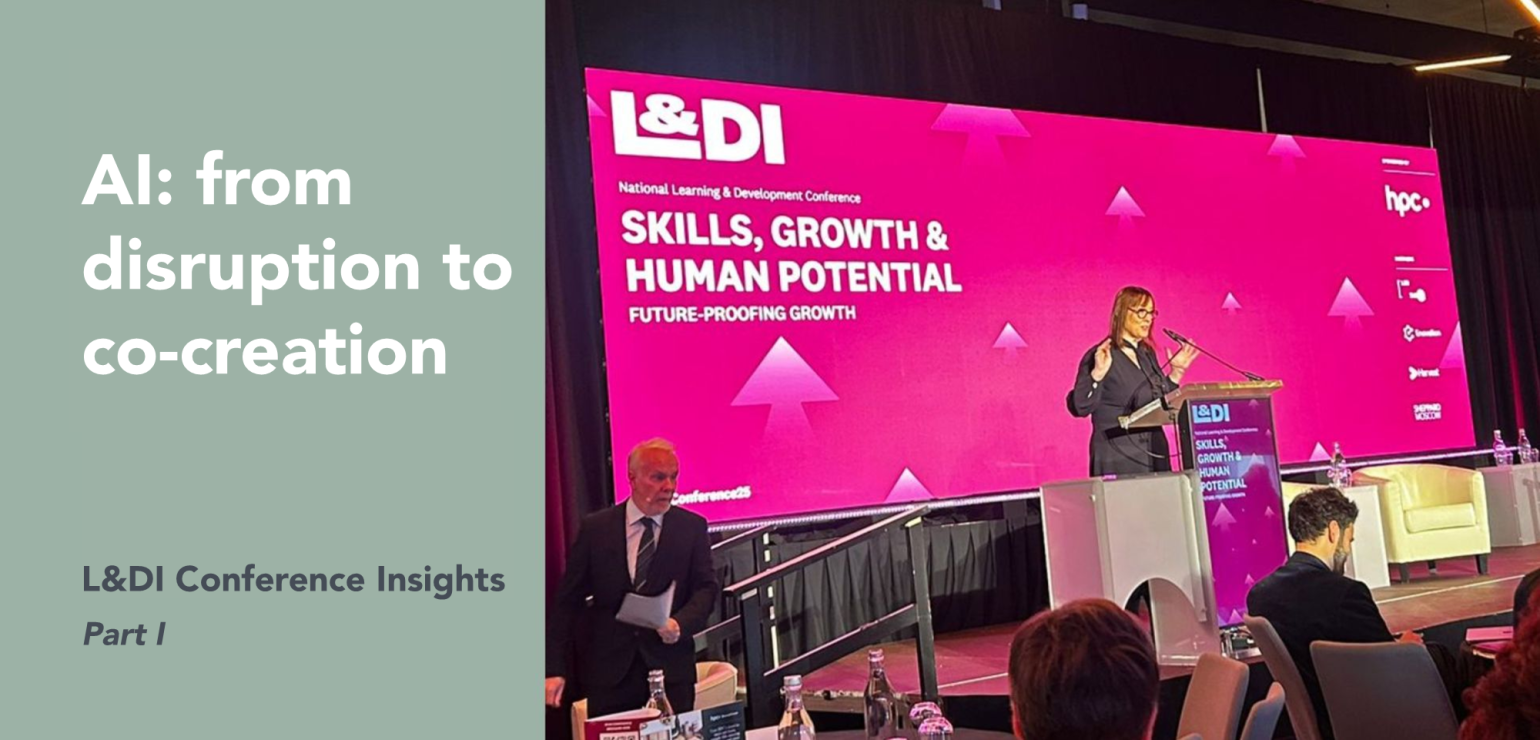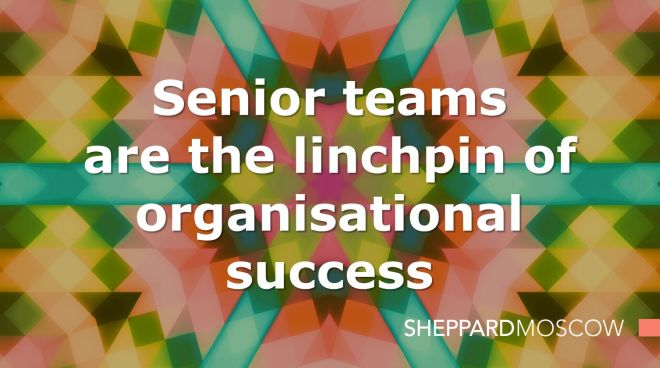Leadership 2021

What does post pandemic leadership look like?
Covid-19 is teaching us all a practical life lesson on the real difference between the complex and the merely highly complicated; but how have leaders risen to the challenge of being agile in such volatile, uncertain, complex, ambiguous (VUCA) circumstances? Have there been any ‘upsides’?
For example, have there been overdue individual, team, and business breakthroughs in leadership practices despite, or indeed even because of, all the turbulence? And more importantly – to get ready for a post-pandemic world, what are the questions most urgently in need of leadership attention? We recently asked these questions to a few small intimate groups drawn from our clients. This is what emerged from those conversations...
What is it that needs leading right now?
It was not a surprise to hear the themes reported by our clients as they shared what it is like to lead in a pandemic: almost universally, organisations are dealing with the pressures of delivering to demanding objectives, under extraordinary circumstances, while continuing to enable their businesses to thrive. At the same time, though, fault lines in operating models have been exposed and decision making has become harder as circumstances become more uncertain and ambiguous. Within teams, experiences of extreme work overload and challenges with personal boundary management are occurring. It seems that somehow the psychological contract has been subtly altered and employees now seem to be committing themselves to over-work as some sort of manifestation of survivor guilt. Even more troubling, where successful adaptation has taken place, and new ways of working and collaborative business practices have emerged, the crisis adrenalin has run out, and a general malaise seems to have descended with some leaders describing teams that are deflated, bored and downright unmotivated. We are seeing signs that working in this way is becoming unsustainable for the long term.
It wasn’t all bad was it? Some of it was better than it used to be …
It would be remiss to describe the current leadership context in purely negative terms. There have been breakthroughs, and many learnings from this period will be incredibly useful in adapting to the future – whatever that might look like. So, we also heard stories about much wider engagement across organisations and people feeling more included. Some leaders are demonstrating hitherto un-seen levels of empathy and emotional intelligence, as they realise that compassion and human contact are some of the most critical enablers of team cohesion and, indeed, wellbeing at work. And at least one of our clients’ businesses has been managed better than it ever was as good people management practices are for the first time really expected of all line managers.
Similarly, increasing democratization is occurring – as the ‘circle of involvement has been widened’. It has emerged that ‘voice matters’ and leaders have been listening more and have started to relate much more widely. Engagement scores have risen for many of our clients and so this ‘listening’ has been incredibly effective. Indeed, as more and more people are working from home and no longer in the view of the corner office or ‘God-pods’; leaders are beginning to see that team members can be trusted to deliver way beyond expectations, even when perched in a kids’ bedroom. So, we are seeing the emergence of a more ‘Adult-to-Adult’ culture.
As we review these stories, we have attempted to codify what seems to be permanently changing about our experiences and expectations of leadership, and how we can help ourselves as leaders, and our leader colleagues, to continue to evolve.
What Leadership Capabilities do we need going forward?
As 2021 beckons and the all-too wished for ‘re-set’ opportunity looms ever hopeful - what are the new leadership challenges that Leaders will face?
It won’t be a surprise to note that whilst some of the ‘forced fun’ and other social activities have started to get a little tired now, much of what worked in the early phases of virtual working are equally important now – especially when it comes to leadership behaviour. Leaders need to help support team members through a grieving process as they mourn the loss of the way things were and slowly move towards ‘acceptance’ of a new reality. This, by necessity, will involve a lot more vulnerability and kindness. Creating more intentional space to connect via ‘virtual coffee chats’ or other agenda-less check in sessions will continue to be valuable. Some clients are reporting an expectation of leaders as healers and/or of organisations with far-increased social and pastoral expectations that extend way beyond the more traditional realm of CSR.
But there also still needs to be direction, so Leaders will need to work to engage teams around compelling visions of the future and find a new purpose and reason for being. And so we also see ‘Leaders as Adapters’. This of course is harder in a VUCA context where there are no right answers and so they must also seek to create a culture of experimentation and ‘fail fast’, which of course goes hand in hand with legitimizing the new ‘democracy’ by empowering and enabling team members and creating the conditions for successful collaboration. This creates a ‘shared adaptive evolutionary process’ which creates more agility and is more likely to attract followership than more traditional top down approaches.
However, empowerment doesn’t work without accountability, and so clarity needs to be found on roles and responsibilities and leaders will need to give their attention to ‘ruthless prioritisation’, which will remove obstacles and forge a much-needed path through the overload to create room for innovation.
Sheppard Moscow’s view: Complex Leadership
Post-pandemic, leaders will need to be more aware than ever before of their biases and assumptions about ‘what works’, and we might want to ask ourselves what are the most effective leadership responses, now, to a VUCA word? Perhaps the first thing we will recognise is that while many things now are complex, some are merely complicated, and others quite clear but very difficult; and that we need to respond accordingly:
The basics of good people management are Clear but very difficult for the time constrained, event-driven leader working in a virtual world … if we are not utterly disciplined in how we prioritise our time and our calendars, lead our team meetings, and show up in our one-to-ones.
The workplace of the future will be Complicated, no longer synonymous with the office, plant or other facility. Remote working, ‘neighborhood hubs’, ‘hybrid teams’, ‘purpose-centred offices’, and the many other possibilities which have entered our lexicon, require the right elements – spaces, personal equipment, tech platforms, norms of human interchange - to be combined in the right way. This requires leadership attention – our people can’t survive and thrive forever perched on the edge of kitchen tables, trying to work as teams using tech platforms that are not fit for purpose, attending poorly organised meetings that neglect the basic protocols and etiquette that are conducive to group productivity.
And then there’s the genuinely Complex; the situations that require ‘vision, understanding, courage, and agility’ (to quote Bill George); the capabilities to make meaning of a myriad of possibilities, appreciate multiple perspectives, act with emotional intelligence, and be comfortable with waiting, ‘not knowing’ and tolerating ambiguity.
How to learn how to navigate the Complex? You already have. That’s what you need to understand and appreciate now – when you were at your best in 2020, when you and your colleagues delivered exceptional performance in exceptional circumstances this year, what actually happened, what enabled that, what were the factors that made the difference? Reflect on, inquire into, appreciate, and understand those enablers, and you will be able to replicate and amplify them.
As we end 2020, and face into a post-vaccine 2021 with renewed optimism, our suggestion is to take time to reflect on how you were at your best in the pandemic, so you can be at your best again in the future.

 Johnny Kelleher
Johnny Kelleher  Deborah Gray
Deborah Gray 
 Aoife Keane
Aoife Keane 
